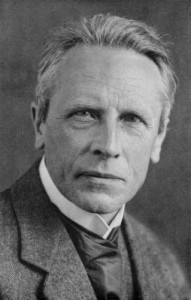4.647 slov
English original here
V mezidobí od konce 1. světové války do nastolení národně socialistického režimu se z politické, hospodářské a sociální krize, do níž se Německo následkem porážky ve válce propadlo, zrodilo hnutí, jež vešlo ve známost jako „konzervativní revoluce“, případně „revolučně konzervativní hnutí“, jehož příslušníci jsou označováni jako „konzervativní revolucionáři“ či „neokonzervativci“.
Samotný termín „konzervativní revoluce“ se masověji rozšířil hlavně díky projevu slavného básníka, katolického kulturního konzervativce a monarchisty Huga von Hofmannsthala z roku 1927. (more…)








